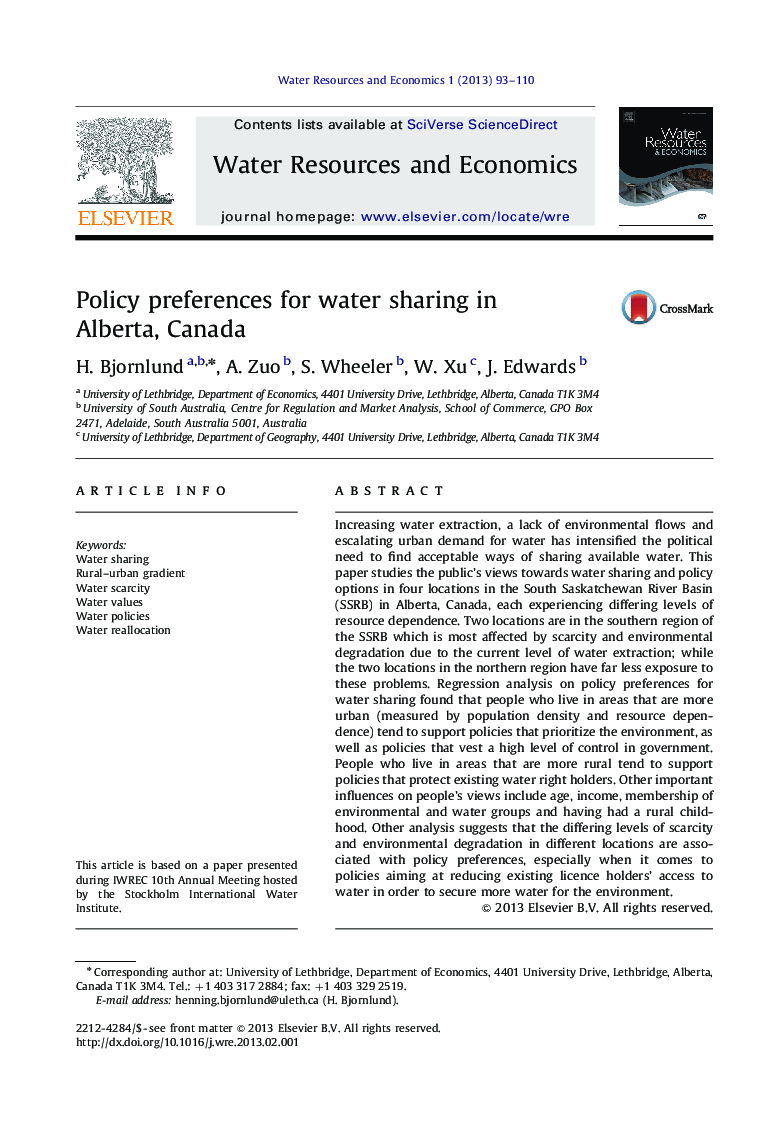| Article ID | Journal | Published Year | Pages | File Type |
|---|---|---|---|---|
| 991057 | Water Resources and Economics | 2013 | 18 Pages |
Increasing water extraction, a lack of environmental flows and escalating urban demand for water has intensified the political need to find acceptable ways of sharing available water. This paper studies the public's views towards water sharing and policy options in four locations in the South Saskatchewan River Basin (SSRB) in Alberta, Canada, each experiencing differing levels of resource dependence. Two locations are in the southern region of the SSRB which is most affected by scarcity and environmental degradation due to the current level of water extraction; while the two locations in the northern region have far less exposure to these problems. Regression analysis on policy preferences for water sharing found that people who live in areas that are more urban (measured by population density and resource dependence) tend to support policies that prioritize the environment, as well as policies that vest a high level of control in government. People who live in areas that are more rural tend to support policies that protect existing water right holders. Other important influences on people's views include age, income, membership of environmental and water groups and having had a rural childhood. Other analysis suggests that the differing levels of scarcity and environmental degradation in different locations are associated with policy preferences, especially when it comes to policies aiming at reducing existing licence holders' access to water in order to secure more water for the environment.
